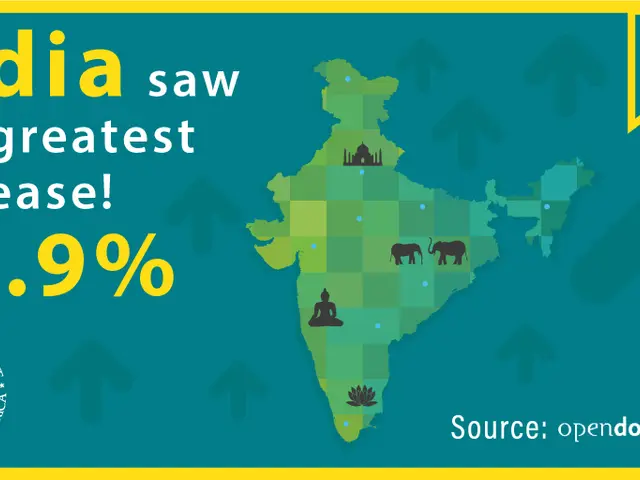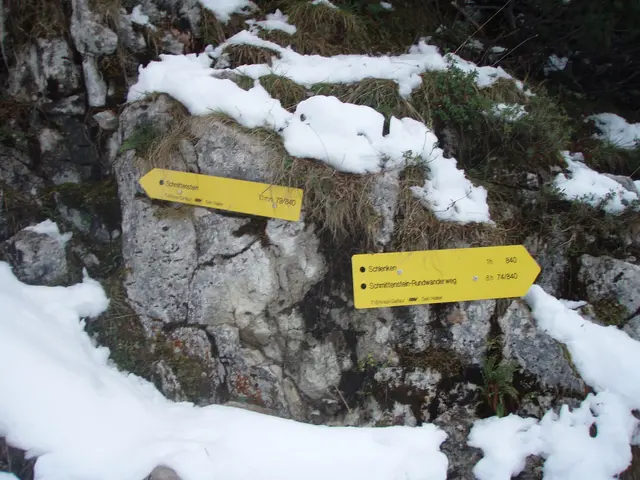Tackling Digital Crimes: LKA's Chief Aims for Proactive Policing
- *
Addressing misconduct: LKA head seeks to "understand and tackle the prevailing issue" - Addressing misconduct proactively: LKA head aims to take the lead in addressing issues
The Lower Saxony State Criminal Police Office (LKA) is on a mission to combat child and youth pornography effectively online. "I want us to be one step ahead," proclaimed the current LKA President, Friedo de Vries, speaking to the German Press Agency before his move to Osnabrück. The goal is to act swiftly on recent cases of abuse, instead of reacting after the fact.
Over the past few years, the LKA has ramped up its focus on online child exploitation, with some departments seeing staff numbers more than double. De Vries did not provide specific figures but hinted at a stabilization in personnel numbers, although he mentioned there aren't many new police academy graduates at the moment.
Moving Coverage & Challenges
De Vries is set to transition to Osnabrück on May 1st, taking up the role of police president on June 1st. The current Osnabrück president, Michael Maßmann, will retire on May 31st. The Ministry of the Interior has announced they will advertise the position of LKA president shortly. Between May 1st and De Vries's official start date, the vice-president of the police directorate in Hannover, Thorsten Massinger, will be responsible for the LKA president's duties on an interim basis.
De Vries moved from Osnabrück to the LKA headquarters in Hannover back in 2018. He attributes his return to personal reasons, as he resides in Osnabrück. During his tenure at the LKA, he experienced several high-profile challenges, including the raid on the record-breaking find of 16 tons of cocaine in the Hamburg port and the arrest of former RAF terrorist Daniela Klette in Berlin in February 2024.
Enhancing Investigations with AI
To root out child and youth pornographic content in vast amounts of internet data more efficiently, law enforcement has relied on artificial intelligence (AI) for years. Since 2020, the LKA has utilized programs developed in-house for this purpose, which De Vries expressed pride in.
AI technology aids in data collection and analysis, and De Vries believes even greater achievements can be accomplished with its continued use and advancements. While resources aren't the concern, he stressed that success lies in effective data exploitation rather than mere availability.
Building Community Trust & Future Prospects
In the coming years, fostering connections and uncovering criminal networks will be crucial. Connectivity and digital prowess will be key challenges. Digitalization is also reshaping the world of forensics.
For De Vries, gaining and maintaining public trust is essential: "We need the support of the people to maintain security. We must constantly earn their trust." In the future, the LKA plans to leverage digital twin technology for crime scene reconstructions, as already implemented in Bavaria and Hesse.
The LKA's tactics align with broader German digital policing initiatives, such as the ZIT (Central Office for Information Technology). As the LKA looks ahead, cross-state data sharing and AI-powered victim identification could significantly enhance their ability to rescue exploited minors.
- LKA
- Police
- Osnabrück
- Chief
- Abuse
- Lower Saxony LKA
- Hannover
- German Press Agency
- Police directorate
- Digitalization
Enrichment Data:
The Lower Saxony State Criminal Police Office (LKA) employs artificial intelligence (AI) to aggressively combat child and youth pornography through several key strategies:
1. Automated Content Analysis
- Image/Video Identification: AI detects known abuse material using hash-matching and identifies new content via pattern recognition.
- Metadata & Network Mapping: AI tracks digital footprints (e.g., IP addresses, timestamps) to trace uploaders and collaborators, helping identify distribution networks.
2. Prioritization & Efficiency
- Case Triage: AI flags high-priority content (e.g., new victims, severe abuse) for expedited investigations.
- Resource Allocation: AI reduces the manual review workload, allowing officers to focus on high-risk cases.
3. Proactive Detection
- Dark Web Monitoring: AI scans encrypted platforms for covert trafficking activities.
- Behavioral Analysis: AI detects suspicious patterns (e.g., bulk uploads, repeat offenders).
Future Plans & Challenges
- AI Expansion:
- Real-Time Detection: Faster identification of live-streamed abuse.
- Cross-Border Collaboration: Integrating tools with international databases (e.g., Europol's AI systems).
- Technological Upgrades:
- Deep Learning Models: Improved accuracy in distinguishing legal from illegal content.
- Natural Language Processing (NLP): Monitoring encrypted communications for grooming or transactional language.
- Ethical Safeguards:
- Bias Mitigation: Regular audits to prevent AI from misclassifying benign content.
- Legal Compliance: Ensuring tools adhere to GDPR and German privacy laws.
Contextual Note
While Lower Saxony's specific protocols aren't publicly disclosed due to operational security, these strategies align with Germany's broader digital policing initiatives, including the ZIT (Central Office for Information Technology). The LKA's future focus likely includes cross-state data sharing and AI-driven victim identification to rescue exploited minors more effectively. For more details, see reports by the German Federal Criminal Police Office (BKA) or Lower Saxony's Interior Ministry updates.
- The Lower Saxony State Criminal Police Office (LKA) is focused on using artificial intelligence (AI) to combat child and youth pornography, employing techniques such as automated content analysis, prioritization, and proactive detection.
- In order to be one step ahead in combating digital crimes, the LKA's current president, Friedo de Vries, who is moving to Osnabrück, aims to strengthen their employment policy with a focus on digitally-oriented strategies and leveraging the power of AI technology.
- The LKA's broad objectives encompass fostering connections and uncovering criminal networks by embracing digitalization in forensics and leveraging technology for crime scene reconstructions, as seen in Bavaria and Hesse.
- By emphasizing digital prowess and maintaining public trust, the LKA strives to enhance its reactive policing capability and work towards proactive detection, aiming for significant advancements with AI advancements and cross-border collaboration.








